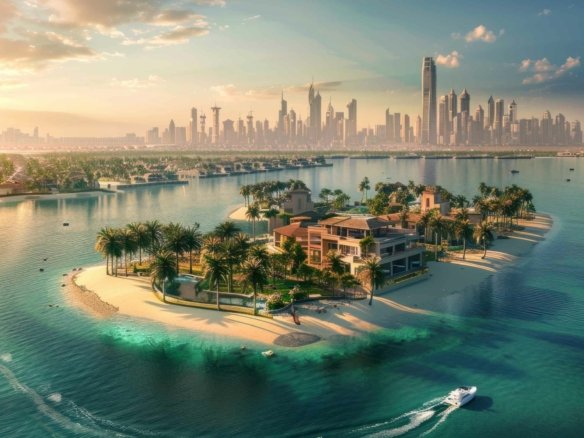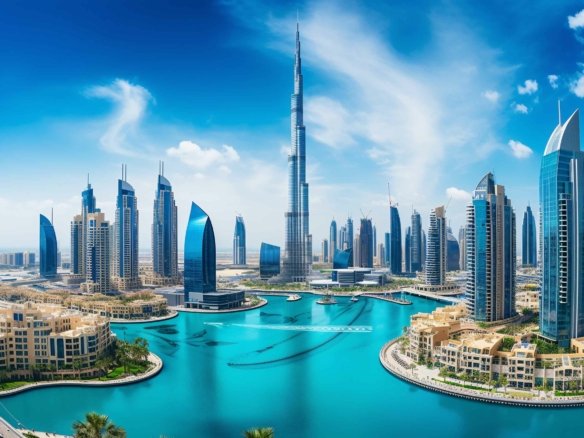The United Arab Emirates (UAE) has long been a global hub for business, tourism, and innovation. Its dynamic economy, strategic location, and commitment to creating a world-class infrastructure have made it a magnet for expatriates and investors alike. A key factor driving the UAE’s attractiveness is its progressive visa policies, which have undergone significant reforms in recent years. These new visa regulations are reshaping the landscape of the UAE’s real estate market, creating opportunities and challenges for both investors and developers.
In this blog, we’ll explore the details of the UAE’s new visa regulations and analyze their impact on real estate demand. We’ll also delve into how these changes align with the country’s broader economic goals and what stakeholders can expect moving forward.
Overview of the UAE’s New Visa Regulations
The UAE has introduced several visa reforms aimed at attracting and retaining global talent, fostering economic growth, and enhancing its appeal as a long-term investment destination. Key highlights of these reforms include:
1. Golden Visa Program
Introduced in 2019, the Golden Visa offers long-term residency to investors, entrepreneurs, specialized talents, researchers, and outstanding students. This visa, valid for 5 or 10 years, provides the security and stability needed for expatriates to invest in the UAE without the uncertainty of shorter visa durations.
2. Retirement Visa
The UAE has introduced a retirement visa for expatriates aged 55 and above. Eligible retirees can secure a 5-year renewable visa if they meet certain financial criteria, such as owning property worth AED 1 million or maintaining significant savings.
3. Freelance and Remote Work Visas
Recognizing the growing trend of remote work, the UAE has launched visas for freelancers and remote workers. These visas allow professionals to reside in the UAE while working for companies or clients based overseas, creating a new demographic of potential property buyers and renters.
4. Green Visa
The Green Visa is designed for skilled workers, freelancers, and investors, granting them self-sponsorship and a 5-year residency. It’s aimed at reducing dependence on employers for visa sponsorship and fostering a more flexible and independent workforce.
5. Expanded Visa Eligibility for Families
New rules have made it easier for expatriates to sponsor their families. Parents can now sponsor their children up to the age of 25, and there are relaxed guidelines for sponsoring dependents with special needs. This change is expected to encourage more families to settle in the UAE, boosting demand for family-friendly housing.
Impacts on Real Estate Demand
The new visa regulations are having a profound impact on the UAE’s real estate market, driving demand across various segments. Here’s a closer look at how these changes are influencing the market:
1. Increased Demand for Residential Properties
Long-term residency options, such as the Golden Visa and Retirement Visa, are encouraging expatriates to view the UAE as a permanent home rather than a temporary work destination. This shift is leading to a rise in demand for:
- Luxury Villas and Apartments: High-net-worth individuals and retirees eligible for long-term visas are investing in upscale properties, particularly in areas like Palm Jumeirah, Downtown Dubai, and Yas Island.
- Family-Friendly Communities: Areas like Arabian Ranches, Dubai Hills Estate, and Al Raha Gardens are witnessing increased interest from families seeking spacious and community-oriented living.
- Affordable Housing: Mid-income families and professionals benefiting from new visa options are driving demand for affordable properties in neighborhoods like Dubai South, Al Qudra, and International City.
2. Boom in Freehold Property Investments
The Golden Visa and other residency programs incentivize property ownership by offering long-term residency to investors who meet specific property value criteria (e.g., AED 2 million for Golden Visa eligibility). This has led to:
- A surge in foreign investments in freehold areas such as Dubai Marina, Business Bay, and Saadiyat Island.
- Increased competition among developers to offer attractive payment plans and incentives to potential buyers.
3. Growth of the Rental Market
The influx of freelancers, remote workers, and skilled professionals under the Green Visa and Freelance Visa programs is boosting demand for rental properties. Key trends include:
- Short-Term Rentals: Areas near business hubs and popular tourist destinations, like Downtown Dubai and Jumeirah Beach Residence, are seeing high demand for short-term leases.
- Co-Living Spaces: Young professionals and remote workers are driving demand for co-living spaces that offer affordability, flexibility, and community living.
4. Rise in Mixed-Use Developments
Developers are increasingly focusing on mixed-use projects that cater to the evolving needs of residents and investors. These developments combine residential, commercial, and recreational spaces, offering convenience and fostering vibrant communities. Examples include:
- Dubai Creek Harbour: A waterfront destination blending luxury living with retail and leisure amenities.
- Masdar City: A sustainable development in Abu Dhabi attracting environmentally conscious investors.
5. Impact on Secondary Markets
The introduction of long-term visas is not only driving demand in the primary real estate market but also revitalizing the secondary market. Property owners are seeing increased interest from expatriates looking to settle permanently, resulting in:
- Higher resale values in established communities.
- Increased liquidity in the market, benefiting both buyers and sellers.
Aligning with the UAE’s Vision
The new visa regulations are a key component of the UAE’s broader economic vision, which includes diversifying the economy, fostering innovation, and enhancing the quality of life for residents. By encouraging long-term residency and investment, these policies are helping to:
- Attract Global Talent: Skilled professionals in fields like technology, healthcare, and finance are choosing the UAE as a base, contributing to economic growth and innovation.
- Enhance Economic Stability: Long-term visas reduce the transient nature of the expatriate population, creating a more stable and predictable demand for housing.
- Promote Sustainable Development: The focus on family-friendly and sustainable communities aligns with the UAE’s commitment to environmental and social well-being.
Challenges and Considerations
While the new visa regulations present numerous opportunities, they also come with challenges that stakeholders must address:
- Affordability Gap: Balancing luxury and affordable housing remains a challenge, particularly for mid-income earners.
- Oversupply Risks: Developers must carefully plan projects to avoid oversaturation in the market.
- Regulatory Compliance: Ensuring transparency and compliance in property transactions is critical to maintaining investor confidence.
Future Outlook
The UAE’s real estate market is poised for sustained growth, driven by the new visa regulations and broader economic initiatives. Key trends to watch include:
- Increased Foreign Investments: The Golden Visa and other programs will continue to attract global investors, particularly from regions like Europe, Asia, and Africa.
- Expansion of Sustainable Projects: Developers will increasingly focus on green building practices and eco-friendly developments to meet demand from environmentally conscious buyers.
- Rise of Smart Cities: Technology-driven projects, such as smart homes and AI-enabled property management, will gain prominence, enhancing the appeal of UAE real estate.





Join The Discussion